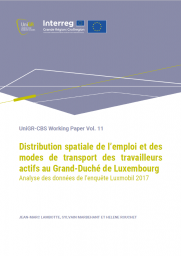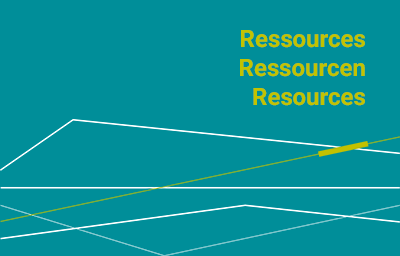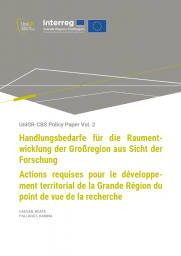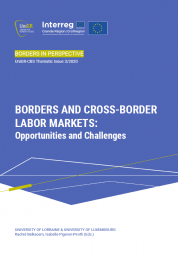Working Paper Vol. 11

Analysing the database of the Luxmobil 2017 survey, this article presents the main outcomes concerning the spatial distributions of employment and modal choices related to commuting of both resident and cross-border workers within the Grand Duchy of Luxembourg. This analysis highlights the significant disparities regarding these distributions, the predominant car dependency and the required conditions to achieve a high modal share of public transport. Confronted with the challenging European objective of decarbonisation by the year 2050 and considering the national and supra-regional strategic documents, in order to coordinate urban development with the public transport offer, a voluntarist cross-border ‘transit-oriented development’ policy appears to be necessary.



